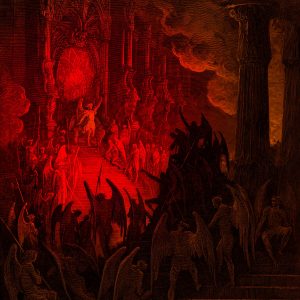This was a tough one. I highlighted so much in this short book that it was hard to pick.
On The Shortness Of Life by Seneca, a stoic philosopher, is Seneca’s take on how humans use, or rather, misuse their time. How we allow our truly precious time to be taken over by others or by tasks and pleasures that are not fulfilling. This way we become what he calls “preoccupied”.
He explains that the truly free man is one who is in complete control of his time and dedicates it to philosophy.
The Highlights
1. You are living as if destined to live forever; Your own frailty never occurs to you. You act like mortals in all that you fear and like immortals in all that you desire.
2. It is generally agreed that no activity can be successfully pursued by an individual who is preoccupied, since the mind when distracted absorbs nothing deeply.
Living is the least important activity of the preoccupied man; yet there is nothing which is harder to learn.
3. Learning how to live takes a whole life, and, which may surprise you more, it takes a whole life to learn how to die.
4. It is the sign of a great man, and one who is above human error, not to allow his time to be frittered away. For being an extremely thrifty guardian of his time he never found anything for which it was worth exchanging. So he had enough time; but those into whose lives the public have made great inroads inevitable have too little.
5. *Referring to the past. This period of our time is sacred and dedicated, which has passed beyond all human risks and is removed from Fortune’s sway. It cannot be disturbed or snatched from us: it is an untroubled, everlasting possession.
6. Putting things off is the biggest waste of life. It snatches away each day as it comes, and denies us the present by promising the future. The greatest obstacle to living is expectancy.
You are arranging what lies in Fortune’s control, and abandoning what lies in yours. The whole future lies in uncertainty: Live immediately.
7. Life is very short and anxious for those who forget the past, neglect the present and fear the future.
8. If we are prepared in loftiness of mind to pass beyond the narrow confines of human weakness, there is a long period of time through which we can roam.
We can argue with Socrates, express doubt with Carneades, cultivate retirement with Epicurus, overcome human nature with the Stoics and exceed its limit with the Cynics.
9. The most wretched are those who are toiling even at their own preoccupations, but must regulate their sleep by another’s, and their walk by another’s pace, and obey orders in those freest of all things, loving and hating. If such people want to know how short their lives are, let them reflect how small a portion is their own.
One interesting point he makes in this book (which made me adapt my way of thinking about this) is that the past is precious. We tend to hear that we should only live in the moment, and although he does not fully reject this idea, Seneca sees the past as a treasure not something to be forgotten and thrown away.
It’s by appreciating the past , and visiting it, where deep thoughts and understanding comes from. By studying those who have perished in the past we can have access to infinite knowledge and wisdom.
Overall this book is amazing and I definitely recommend it! If you are interested in this book you can buy it right here



